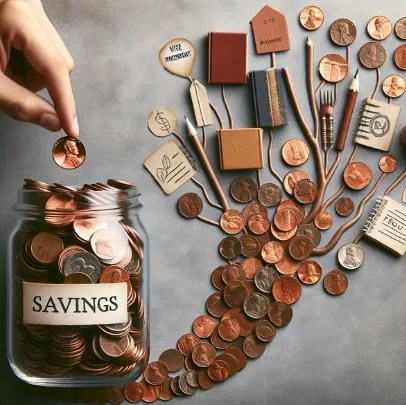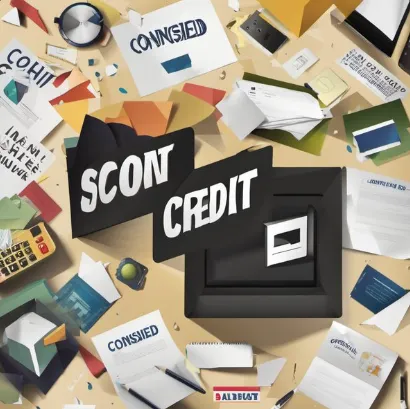Becoming a “savings hero” doesn’t require drastic lifestyle changes or extreme penny-pinching. Instead, it’s about cultivating daily habits that fit seamlessly into your routine. wether you’re new to managing finances or looking to refine your strategy, Budgeting for Beginners offers the tools to start small and grow your savings over time. This guide will introduce you to ten practical habits, ensuring you save money without sacrificing the joys of life. Let’s dive into how small steps can lead to financial freedom!
The Power of Small Changes: Building Your Daily Budgeting for Beginners Routine
Saving money starts with recognizing that small, small, consistent actions are powerful. For beginners, the idea of budgeting might seem intimidating, but breaking it into manageable steps makes it easier. Start by setting clear, achievable goals. For example, aim to save $5 a day. It sounds minor, but over a year, it adds up to $1,825—without major sacrifices! Savings Hero
Track your progress using a simple notebook or app. IDentify habits that drain your finances, like buying daily coffee, and consider alternatives such as brewing at home. Small shifts, like opting for carpooling or adjusting your thermostat, can result in noticeable savings.
Remember, teh secret is consistency. By embedding these small adjustments into your daily routine, you’ll cultivate a mindset of mindful spending—a crucial step for Budgeting for Beginners.
Tracking Every Penny: Simplifying Expense Monitoring for Beginners Beginners
The key to successful budgeting is knowing where your money goes. Start by recording every expense, from utility bills to the snack you grabbed at the gas station. You can use a mobile app like Mint or YNAB (You Need A Budget) to automate this process and categorize spending. Savings Hero
Review your data weekly too spot patterns. Are you overspending on dining out? Are subscription services eating into your budget? Adjust accordingly by prioritizing needs over wants.
Creating a visual budget, such as a pie chart or spending tracker, can be a game-changer. Seeing the big picture helps you allocate funds more wisely, ensuring you stick to your savings goals. THis habit is a cornerstone of Budgeting for Beginners, as it empowers you to control your finances proactively.
Automate to Elevate: How Technology Can Streamline Your Savings Efforts Savings Hero
In today’s digital age, automation is your best friend when it comes to saving. Set up automatic transfers to your savings account on payday. payday. This “out of sight, out of mind” approach ensures you save consistently without overthinking it.
Budgeting apps like PocketGuard or Digit go a step further, analyzing your spending habits and suggesting personalized saving strategies. Some even round up your purchases to the nearest dollar and deposit the difference into your savings account—a painless way to save!
Automation also applies to bill payments. Late fees can chip away at your budget, so schedule recurring payments for utilities, credit cards, and loans. These small changes eliminate stress and make Budgeting for Beginners a hassle-free experience.
Teh Habit Swap: Substituting Costly Practices with Money-Smart Alternatives
Sometimes, saving money is as simple as swapping one habit for another. Instead of dining out frequently, master the art of meal prepping. its healthier, cheaper, and surprisingly fun. Similarly, trade expensive gym memberships for at-home workouts or outdoor activities like jogging.
Entertainment doesn’t have to cost a fortune either. Opt for free community events, library resources, or streaming services with shared subscriptions. For shopping, practice the “48-hour rule”—wait two days before making non-essential purchases. This prevents impulsive buys and ensures yuo only spend on what truly matters.
Adopting such swaps not only saves money but also fosters a sense of creativity and resourcefulness. These habits align perfectly with the principles of Budgeting for Beginners, demonstrating that saving doesnt mean sacrificing quality of life.
Saving for Fun: Budgeting for Beginners Without Sacrificing Enjoyment
Who says saving money has to be boring? wtih a little creativity, you can have fun while being financially responsible. Set aside a portion of your budget specifically for entertainment or hobbies. This could be as simple as $20 a week for activities you love.
Explore affordable alternatives like “staycations,” DIY projects, or hosting potluck dinners instead of dining out. Look for discounts, coupons, or loyalty programs programs to maximize savings while enjoying your favorite pastimes.
Remember, budgeting isn’t about deprivation—it’s about making conscious choices. By planning for fun expenses, you maintain a balance that keeps you motivated nad satisfied. This approach ensures that Budgeting for Beginners is a positive, enjoyable journey.
Transitioning “from zero to savings hero” begins with adopting practical, daily habits that align with your lifestyle. By starting small, tracking expenses, leveraging technology, and making mindful swaps, you’ll find that saving money can be both effortless and enjoyable. The principles of Budgeting for Beginners are designed to empower you to take control of your finances, paving the way for a secure and fulfilling future. BEgin your journey today—small steps lead to big wins!






